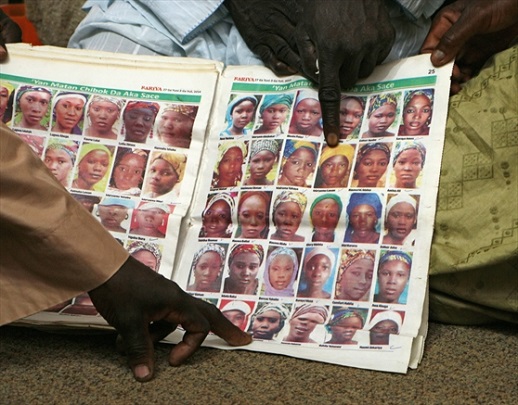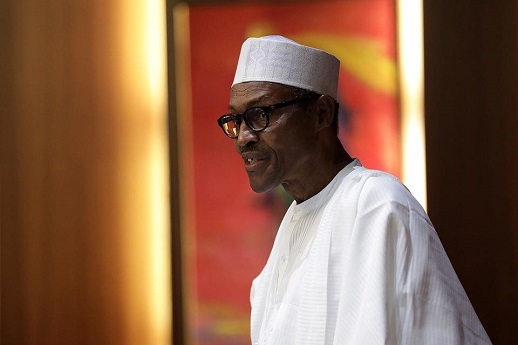
For the families of the 195 Nigerian schoolgirls kidnapped from their dormitories three years ago tomorrow (14 April 2014), grief and despair have been compounded by fear, as the perpetrators of their agony continue to terrorise their town and carry out further abductions with impunity.
Since Boko Haram jihadists abducted 276 girls from their secondary school in the town of Chibok, in the north-eastern state of Borno, some 23 parents have now died of heart disease while many continue to battle stress-related conditions.
While 81 of the girls have escaped or been rescued, it is believed that their captors, who initially boasted that they would sell them as slaves, have opted to hold on to their victims after realising how valuable their high profile has made them. Thus more than two-thirds of the girls are still missing.
Unicef this week reported a sharp rise in the number of children forced to carry out suicide attacks, up from 30 last year to 27 in the first three months of 2017.
In a 13-page report, the agency added that Boko Haram’s abduction of children, of which the Chibok girls are the best known example, is “systematic” and is “fuelling” its insurgency in the Lake Chad region, with kidnapped girls typically being forced into early marriage and sexual slavery. One Chibok girl who escaped last May said six of the remaining captives had died.
Unicef also voiced concern at the prolonged detention of some 1,499 children after their rescue last year, when they were held while the authorities investigated them for jihadist sympathies. Unicef called for the creation of “child-friendly” centres and the prioritisation of their healthcare, education and reintegration into their communities.
Nigerian President Muhammadu Buhari and his predecessor, Goodluck Jonathan, pledged to bring the girls home but have met with little success, partly due to a weak and mistrusted army.

A spokeswoman for the charity Open Doors, who visited Chibok last week, said some parents now hoped their children were dead, rather than having to endure captivity at the hands of Boko Haram.
“For three long years the parents have waited, hoped and prayed for answers about their daughters,” she said. “There has been maddening speculation about their daughters’ fate. Death is not the worst thing they fear. Some days they hope their daughters have entered the presence of Jesus, rather than face one more day at the hands of brutal men who consider abuse of women their just reward and privilege for fighting what they believe to be Allah’s battle.”
Yakubu Nkeki Maina, a representative of the Chibok parents and whose 18-year-old daughter, Maimuna, was kidnapped, said: “We feel deceived by the Government. Promises are made publicly but nothing is done to make this promise a reality. We are subjected to sleepless nights and pain [in our] hearts, which increases by the day. We feel cheated. It seems that we cannot count on the Government. We look up to God, who is able to come to our rescue.”
The release of 21 girls last October briefly gave hope to the Chibok families and to Christians across north-east Nigeria, who have been terrorised by Boko Haram for almost eight years. However, the girls have been detained since their release and allowed to see their parents only a handful of times. Mr. Maina said: “We are not happy with the way [the] Government is keeping our children in Abuja – no school, no nothing. The presidency is telling us something and is doing another thing. It seems we are being deceived by the day.”
Residents of Chibok are still fearful because Boko Haram has recently attacked nearby towns such as Mifah, Kautikari, Makalama and Balakle, and scores of families have been displaced to Mbalala, three miles from Chibok. There is a heavy military presence in Chibok and three of the town’s 13 schools have partially reopened. However, the Open Doors spokeswoman said parents are terrified of sending their children back to school in case Boko Haram strikes again, and church activities are carried out under heavy security.